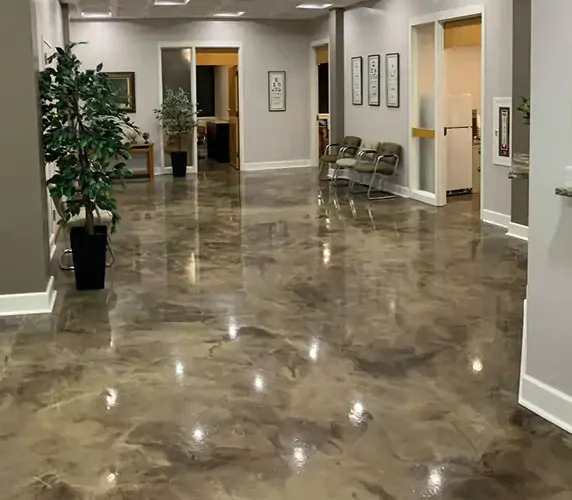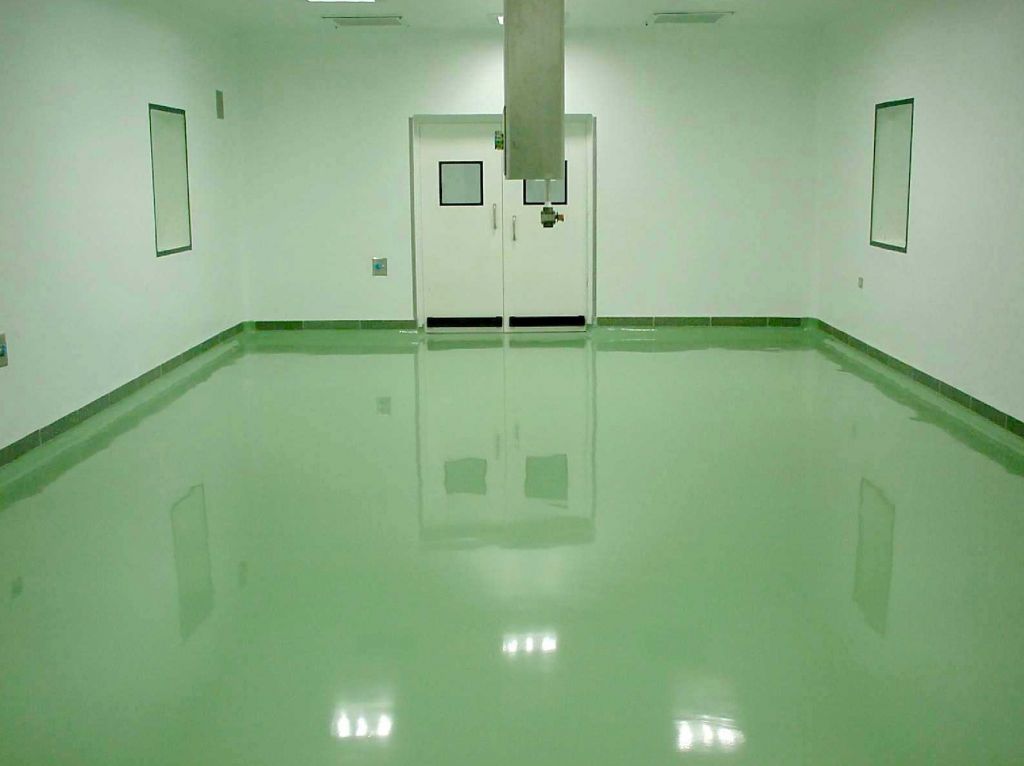- +60 16-688 4222
- info@flooringspecialistmalaysia.com
- Kuala Lumpur, Malaysia
flooringspecialistmalaysia.com

Menu
Benefits of Epoxy
We need to understand the difference between epoxy flooring and epoxy coating, before we start to appreciate the benefits of epoxy. An epoxy floor is a concrete floor with several layers of an epoxy compound of about 2 millimeter thickness. Epoxy flooring is a flooring with 2 mm thickness whilst any epoxy layers less than 2 mm is classified as an epoxy coating.
Business owners often decide to coat their concrete floors with epoxy. Epoxy is primarily made up of two chemicals, resins and hardeners. A proper mixture of these chemicals will create epoxy which is a firm material. It’s the compound used to layer over concrete floors. It may cover industrial as well as commercial epoxy flooring.

Benefits of Epoxy Flooring
Applying an epoxy comes with few advantages such as:
- Tough for flooring
Epoxy is a tough type of plastic used in flooring. Industrial-grade epoxy lasts longer than most concrete floor layers. The strength of epoxy material can withstand the harsh environment of many industrial complexes
- Immediate effect
Epoxy can be quickly coated over concrete floors. Professional installers can apply the compound on floors easily. Installers don’t even have to worry about leveling because the material has self-leveling characteristics.
- Easy to clean
A seamless and glossy epoxy floor can easily be cleaned with a rag or a mop. Aside from quick maintenance, the floor is very attractive because it has a shiny finish which also helps to bring up the brightness inside the building
- Environmentally clean
Companies get an environment-friendly flooring solution with epoxy. It is an easy to find green alternative to other flooring options in the market.
- Great protection
Machines and vehicles passing through epoxy floors won’t get as much wear and tear. Plus, floors are protected from damage and materials move more efficiently. When being compared to normal paint, it is revealing how much normal paint lacks from epoxy paint in so many aspects for examples:
- Basic finishing
Normal paints only functions as a simple finishing material for any surface like concrete, wood, steel and others.
- Thicker than paint
The thickness usually is being limited to 1 to 2 mm and requires simple surface preparation. Normal paints also come in 2 layers only. Primer and top coat.
- Durable
Normal paints also tend to peel off especially during extreme weather conditions. That’s why normal paints are applied only in interior areas. Epoxy and waterproof paint are two products that you may find useful if you own a home with a basement.
- Consistent
Waterproof paint has the consistency of any other kind of paint you would purchase at a paint store, making it easy to apply to any surface.
- Waterproofing feature
Waterproof paint was created almost specifically for this application, which is as waterproofing sealant.
- Good prevention
Waterproof paint will prevent mold and mildew from forming, plus it deters insects.
